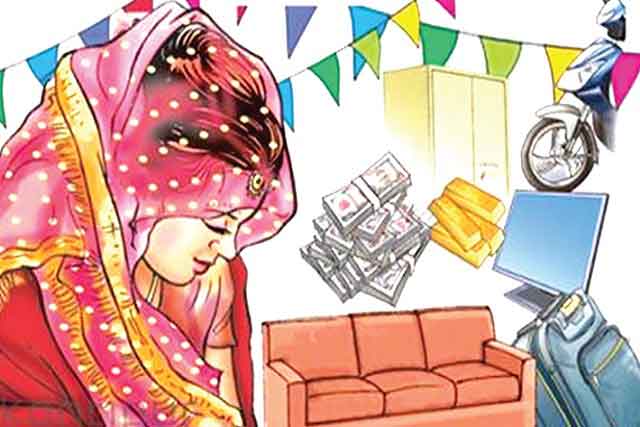Dowry has been a deeply entrenched social issue in India for centuries. Despite legal prohibitions and increasing awareness, this harmful practice continues to plague rural areas of the country. Dowry-related incidents not only perpetuate gender inequality but also lead to the suffering and harassment of countless women. To combat this deeply ingrained problem in rural India, we must address its root causes and take proactive steps towards eliminating it.

Understanding the Problem
Dowry, a practice where a bride’s family is expected to give gifts, cash, or property to the groom’s family at the time of marriage, has a long history in India. In rural areas, this tradition often takes an even more severe toll due to the prevalence of conservative social norms, limited education, and economic disparities. The dowry system can lead to immense financial burden on the bride’s family, often pushing them into debt or impoverishment.
Root Causes
Patriarchal Society: Rural India predominantly adheres to patriarchal norms, where the status of women is subordinated to that of men. This hierarchical structure perpetuates dowry, as it is seen as a way to increase the desirability of a bride.
Low Female Literacy: Education is a powerful tool for women’s empowerment. However, rural areas often lack adequate educational facilities, leading to low female literacy rates. This, in turn, contributes to women being seen as liabilities rather than assets.
Economic Factors: Poverty and lack of economic opportunities in rural areas also play a significant role. Parents often feel compelled to give dowries to secure a “good” match for their daughters, assuming that a groom’s family will financially support her.
Social Pressure: Peer and societal pressure can force families into following the dowry tradition even when they are against it. Fear of social ostracization can be a powerful motivator.
Solutions to Eradicate Dowry in Rural Areas
Education: Promoting education for girls is crucial. Government initiatives should focus on improving school infrastructure in rural areas and providing scholarships to incentivize families to send their daughters to school. Educated women are more likely to resist dowry demands and contribute to economic stability.
Awareness Campaigns: Raising awareness about the legal consequences of giving or receiving dowry is essential. These campaigns should target both rural communities and urban areas to bridge the gap in knowledge and attitudes.
Legal Reforms: While there are existing laws against dowry in India, stricter enforcement and penalties for dowry-related offenses are necessary. Legal aid should be made readily available to victims of dowry harassment.
Economic Empowerment: Skill development programs and microfinance opportunities should be made accessible to women in rural areas. This would not only boost their economic independence but also change societal perceptions of women as burdens.
Community Engagement: Engaging community leaders, religious leaders, and local influencers can help change mindsets and dispel the notion that dowry is a necessary tradition. Encouraging them to speak out against dowry can have a significant impact.
Support Systems: Establish support systems for women who face dowry harassment. Shelters, helplines, and counseling services can provide assistance to those in need.
Media and Entertainment: Collaborating with the media and entertainment industry to portray dowry as a negative practice in television shows, movies, and advertisements can help shape public perception.
Conclusion
Eliminating the deeply entrenched issue of dowry in rural India presents a formidable challenge, but it is a challenge that can be overcome. A comprehensive strategy encompassing education, legal transformations, economic empowerment, and community involvement is imperative. By tackling the underlying factors behind the dowry system and fostering collective efforts, India can make significant strides toward eradicating this harmful tradition, thereby guaranteeing a more promising and just future for every citizen, irrespective of their gender or societal origins.
Read More:- NGO Rules And Regulations In India 2023: Navigating The Landscape Of Social Impact
Read More:- NAVIGATING THE EDUCATIONAL ODYSSEY: A GUIDE TO CHOOSING THE RIGHT SCHOOL FOR YOUR CHILD
